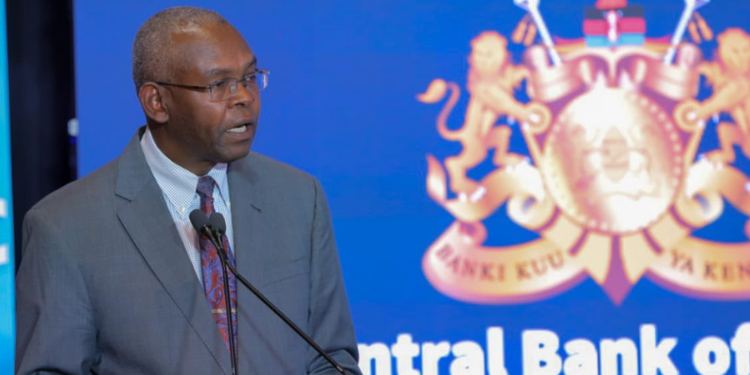Kenyan businesses are expressing mixed employment expectations for 2025, according to data from a Central Bank of Kenya (CBK) survey.
The survey report released on October 14 revealed that while some sectors plan to expand their workforce, others expect to maintain or reduce hiring due to economic uncertainties, rising operational costs, and increased taxation.
“Respondents were asked about whether they expected to increase the number of employees in 2025 relative to 2024. The results showed mixed expectations by banks and non-bank respondents,” read part of the report.
The Survey targeted Chief Executives and other senior officers of 353 private sector firms, including 37 commercial banks, 14 microfinance banks (MFBs), and 302 non-bank private firms, such as 84 hotels. The data was collected through questionnaires administered online, via email, and in hard copies.
Sectors were asked whether they expected to increase the number of employees in 2025.
CBK Reveals Banking And Other Sectors Expected to Hire More Kenyans in 2025
The banking sector emerged as the most optimistic, with a majority of respondents indicating plans to hire more staff, citing continued branch expansion, introduction of new products, business growth, and the need to replace exiting employees.
“Respondents from the banking sector largely expect to hire more in 2025 supported by continued branch expansion and growth in businesses, launch of new products, need to attract new talent, and to replace exiting staff,” read part of the report.
Similarly, non-bank respondents showed moderate optimism, expecting to increase hires to improve efficiency, expand market reach, and boost production capacity.
However, the construction and transport sectors appeared the most cautious, with most respondents indicating they do not expect to increase staff in 2025.
These sectors cited high operational costs, low consumer purchasing power, increased taxes, and the need to leverage technology to reduce manual operations.
Also Read: Employers Reveal Top Sectors Hiring in 2025 and Why
Other Sectors Hiring
The agriculture and manufacturing sectors showed moderate hiring intentions, with a number of firms planning to employ more workers, mainly to meet seasonal demand and replace departing employees.
In contrast, the hospitality sector recorded a relatively upbeat outlook, with more than half of the respondents indicating plans to increase employment to meet growing market demand.
Sector-based risks mentioned included concerns about increased taxation, high energy costs, high business costs, and weak purchasing power, as cited by the construction and hospitality sector respondents. Additionally, the need to reduce costs and lower overheads was cited by trade and transport sector respondents.
CBK noted that while the overall employment outlook remains mixed, hiring decisions will largely depend on business performance, cost management strategies, and the broader economic environment heading into 2025.
Also Read: Govt Addresses Job Losses Fears Ahead of State Corporation Sale
About the Survey
The Central Bank of Kenya (CBK) conducts a Market Perceptions Survey before every Monetary Policy Committee (MPC) meeting to capture views of banks and non-bank private sector firms on key economic indicators, including inflation, economic growth, credit demand, and exchange rates.
The survey also measures respondents’ optimism about the country’s economic prospects and business environment.
A key focus is on current and expected economic activity, particularly employment trends across various sectors.
Commercial banks, microfinance banks, and a representative sample of non-bank private firms from major towns such as Nairobi, Mombasa, Kisumu, Eldoret, Nakuru, Nyeri, Meru, and Kisii participate in the study.
The sectors covered account for about 78 percent of GDP, including agriculture, manufacturing, trade, ICT, transport, real estate, health, construction, and finance. Respondents provide insights into expected changes in employment, highlighting whether firms anticipate expanding or reducing their workforce in the next 12 months.
Follow our WhatsApp Channel and X Account for real-time news updates.













































































